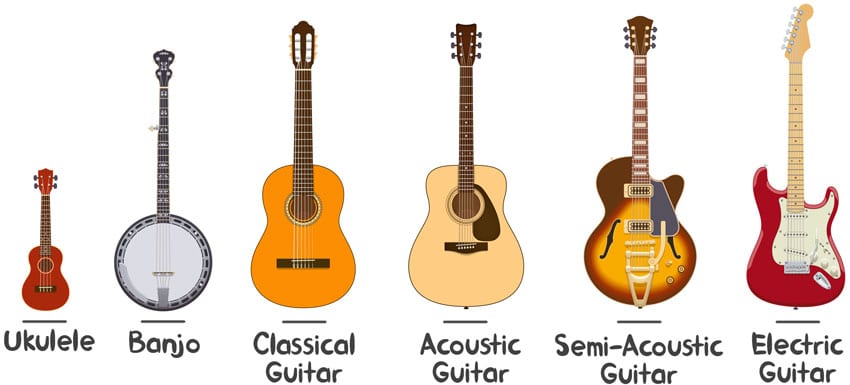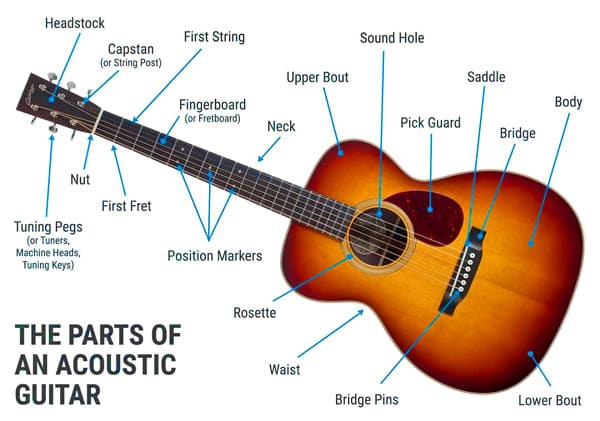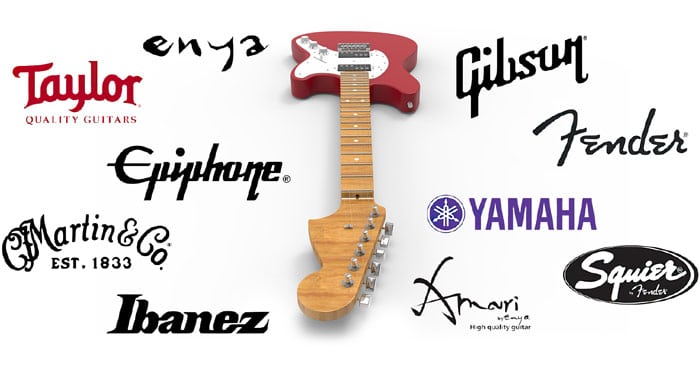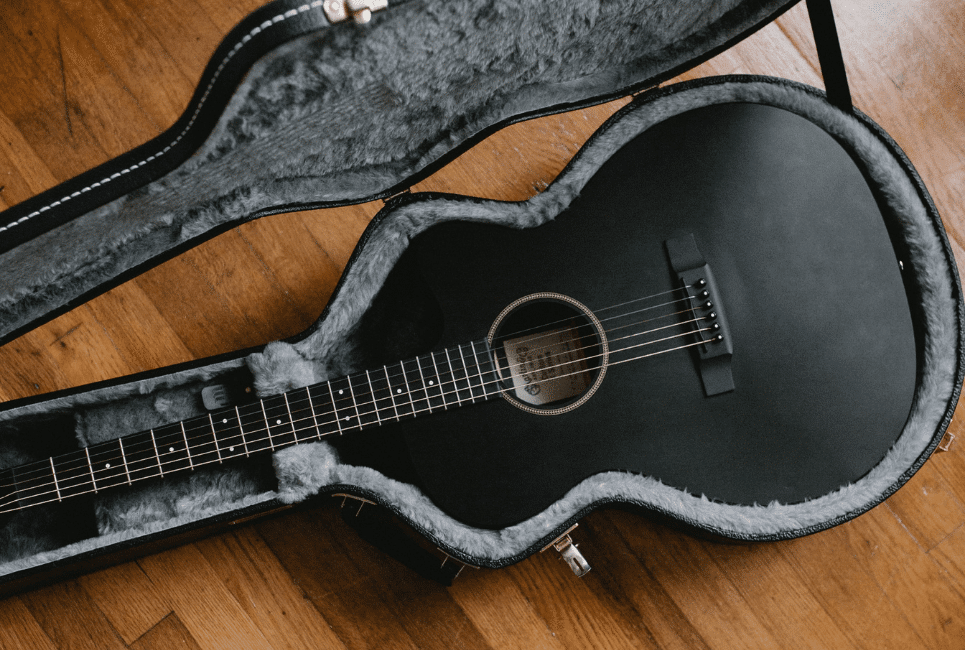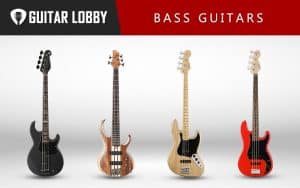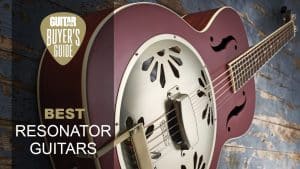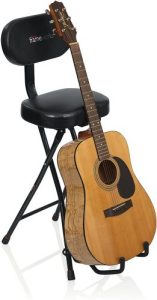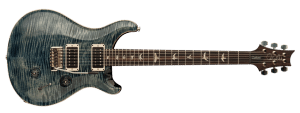Are you a music enthusiast looking to purchase a new guitar, but overwhelmed by the vast options available in the market? Look no further because we have got you covered! In this ultimate guide, we will help you navigate through the endless sea of guitar brands and find the perfect one that suits your unique needs and preferences. From renowned classics to up-and-coming names, we will explore the top contenders, providing you with valuable insights and expert advice to make the best decision possible. Get ready to strum your way to musical bliss with the best brand of guitar for you!
1. Understanding Different Types of Guitars
1.1 Acoustic Guitars
Acoustic guitars are the most traditional and popular type of guitar. They produce sound through the vibration of the strings, which is then amplified by the body of the guitar. They are known for their warm and natural sound, making them perfect for folk, country, and singer-songwriter genres. Acoustic guitars come in various sizes, including dreadnought, concert, and parlor, each offering different tones and playability.
1.2 Electric Guitars
Electric guitars rely on electronic amplification to produce sound. They have a solid or semi-hollow body and require an amplifier to be heard properly. Electric guitars are versatile and can be used in a wide range of music genres such as rock, blues, jazz, and metal. They offer endless sound possibilities, thanks to the use of pickups and various effects pedals. Electric guitars come in different body shapes, including stratocaster, telecaster, and les paul.
1.3 Classical Guitars
Classical guitars, also known as nylon-string guitars, have a wide neck and use nylon strings instead of steel strings. They are typically used in classical music, flamenco, and folk music. Classical guitars produce a warm and mellow tone and are well-suited for fingerstyle playing. The necks of classical guitars are wider, which allows for easier finger positioning and chord shapes.
1.4 Bass Guitars
Bass guitars are similar in appearance to electric guitars, but they have a longer scale length and fewer strings. They are primarily used to provide the low-end foundation and rhythm in a band or ensemble. Bass guitars come in various styles, such as electric bass, acoustic bass, and upright bass. They are crucial in genres like rock, jazz, funk, and reggae, providing the backbone of the music.
2. Factors to Consider when Choosing a Guitar Brand
2.1 Budget
Before diving into the world of guitar brands, it’s essential to determine your budget. Setting a budget will help narrow down your choices and prevent overspending. There are excellent guitars available in every price range, so it’s important to find the balance between affordability and quality.
2.2 Skill Level
Your level of experience and skill as a guitarist should also influence your choice of guitar brand. Beginner and intermediate players may benefit from more budget-friendly options that still offer good playability and sound. Advanced and professional players may require higher-end guitars with superior craftsmanship and tonal capabilities.
2.3 Music Genre
Consider the style of music you play or aspire to play when choosing a guitar brand. Some brands specialize in certain genres, and their guitars may be better suited for specific tones and playing techniques. For example, Fender is renowned for its bright and twangy sound, making it popular among country and rock players, while Gibson is favored by blues and rock guitarists for its warm and fat tone.
2.4 Body Type and Shape
Guitar body types and shapes can greatly impact the instrument’s comfort and sound projection. The most common body types include dreadnought, concert, parlor, stratocaster, telecaster, and les paul. Each body type has its own characteristics and strengths. For instance, dreadnought acoustics offer a balanced tone and strong volume, while stratocasters have a contoured shape that allows for comfortable playing and versatility in sound.
2.5 Tonewoods and Construction
The choice of tonewoods and construction methods used by guitar brands greatly influences the overall sound of the instrument. Different woods can produce distinct tones, from warm and mellow to bright and articulate. Some popular tonewoods include mahogany, spruce, cedar, rosewood, and maple. Additionally, factors like bracing patterns and top construction significantly impact the guitar’s resonance and projection.
2.6 Hardware and Electronics
If you are considering an electric guitar, the hardware and electronics play a crucial role in your decision-making process. The quality of the pickups, bridge, tuners, and other hardware components can affect the overall tone, tuning stability, and playability of the instrument. It’s essential to research and compare the hardware and electronics offerings of different guitar brands to ensure they meet your needs.
2.7 Reputation and Customer Reviews
When investing in a guitar, it’s important to consider the reputation of the brand and the reviews from other musicians. Established brands with a long history often have a solid reputation for delivering quality instruments. Online customer reviews can provide valuable insights into the experiences of other guitarists who have purchased and played guitars from different brands.
2.8 Availability of Accessories and Parts
Consider the availability of accessories and replacement parts for the guitar brand you are interested in. Having access to a wide range of accessories, such as cases, straps, pedals, and strings, can enhance your playing experience. Additionally, a brand that offers readily available replacement parts and a strong support network can be beneficial in case your guitar requires maintenance or repairs.
2.9 Warranty and Support
A good warranty and customer support can provide peace of mind when purchasing a guitar. Consider the warranty offered by different guitar brands, as well as their level of customer support. A comprehensive warranty and responsive customer service can help address any issues or concerns that may arise during your ownership of the guitar.
2.10 Resale Value
While it may not be an immediate concern, considering the potential resale value of a guitar can be important, especially if you plan to upgrade or sell the instrument in the future. Some guitar brands tend to hold their value better than others, making them a better long-term investment. Resale value can also be influenced by factors such as the popularity and desirability of the brand and model.
3. Popular Guitar Brands and their Specializations
3.1 Fender
Fender is an iconic brand known for its electric guitars, particularly the Stratocaster and Telecaster models. Fender guitars are favored by many players in genres like rock, blues, country, and jazz. They are renowned for their bright, clear tones and comfortable playability. Fender also offers quality acoustic guitars with their own unique charm.
3.2 Gibson
Gibson is synonymous with the electric guitar, especially the Les Paul and SG models. Gibson guitars are celebrated for their warm, fat tones and sustain. They are popular among blues, rock, and metal guitarists. Gibson also offers acoustic models, known for their rich, balanced tones and craftsmanship.
3.3 Taylor
Taylor guitars are highly regarded for their craftsmanship and innovative designs. They produce a wide range of acoustic guitars, known for their clarity, balance, and consistent tonal quality. Taylor guitars are favored by singer-songwriters, fingerstyle players, and those seeking versatile instruments.
3.4 Martin
Martin guitars have a long-standing tradition of excellence in acoustic guitar manufacturing. They are known for their rich, resonant tones and impeccable craftsmanship. Martin guitars are popular in folk, country, and bluegrass genres, as well as among professional musicians and collectors.
3.5 Ibanez
Ibanez is recognized for its electric guitars and basses, especially in the rock and metal genres. They offer a wide range of models suitable for various playing styles and budgets. Ibanez guitars are known for their fast necks, versatile pickup options, and aggressive tones.
3.6 PRS
PRS (Paul Reed Smith) guitars are synonymous with quality, craftsmanship, and attention to detail. They are favored by many professional players for their versatility and tonal excellence. PRS guitars offer a wide range of models, catering to a variety of music genres.
3.7 Yamaha
Yamaha produces both acoustic and electric guitars that are known for their reliability and affordability. They offer a great entry point for beginners and intermediate players, providing good playability and sound quality. Yamaha guitars are suitable for a variety of music genres.
3.8 Gretsch
Gretsch guitars have a distinct look and sound, often associated with rockabilly, country, and jazz genres. They offer hollow body and semi-hollow body electric guitars, famous for their warm, twangy tones and vintage aesthetics.
3.9 Epiphone
Epiphone is a subsidiary of Gibson and offers more affordable versions of their iconic models. Epiphone guitars provide good quality and playability, making them popular among beginners and intermediate players.
3.10 Schecter
Schecter guitars are known for their sleek designs and modern, heavy tones. They are preferred by many metal and hard rock guitarists for their powerful pickups, fast playability, and aggressive sound.
4. Evaluating the Sound and Playability
4.1 Sound Quality
The sound quality of a guitar is one of the most important aspects to consider. Different guitar brands and models produce unique tones depending on factors such as the tonewoods used, body construction, and electronics. It’s important to choose a guitar that produces a sound you find pleasing and suits your musical style.
4.2 Playability
The playability of a guitar refers to how comfortable and easy it is to play. Factors such as the neck profile, fretboard radius, and string action can greatly impact the playability of an instrument. It’s crucial to choose a guitar with a neck shape and size that feels comfortable in your hands and allows for easy fretting and chord changes.
4.3 Comfort and Ergonomics
The comfort and ergonomics of a guitar are important for extended playing sessions. Factors such as body shape, weight distribution, and cutaway design can affect how comfortable the guitar feels against your body. It’s essential to choose a guitar that feels balanced and allows for comfortable playing, especially during long gigs or practice sessions.
4.4 Versatility
Consider the versatility of a guitar when evaluating its sound and playability. Some guitars are designed for specific music genres or playing styles, while others offer a broader range of tones and techniques. If you enjoy playing a variety of genres or styles, a versatile guitar will allow you to explore different sounds and techniques without limitations.
4.5 Intonation and Tuning Stability
Intonation refers to the accuracy of each note on the guitar’s fretboard. A guitar with good intonation will play in tune up and down the neck. Tuning stability refers to how well the guitar holds its tuning over time and through different playing conditions. It’s important to choose a guitar that has solid intonation and tuning stability to ensure your playing experience is enjoyable and frustration-free.
4.6 Action and String Height
The action of a guitar refers to the distance between the strings and the fretboard. A higher action requires more finger pressure and can be challenging for beginners or those with smaller hands. A lower action allows for easier playing and faster fretting. Finding a guitar with the right action and string height for your playing style and comfort level is essential.
4.7 Neck Profile and Width
The neck profile and width greatly influence the feel and playability of a guitar. Some players prefer thin and fast necks, while others may prefer wider and chunkier necks. It’s crucial to try out different neck profiles and widths to find the one that feels most comfortable and facilitates your playing style.
4.8 Fretboard Material and Radius
The choice of fretboard material and radius can affect the feel and playability of a guitar. Common fretboard materials include rosewood, maple, and ebony, each offering its own unique touch and tonal characteristics. Fretboard radius refers to the curvature of the fretboard. A flatter radius can facilitate comfortable string bending, while a more curved radius may suit players who prefer wider vibrato techniques.
4.9 Weight and Balance
The weight and balance of a guitar can greatly impact comfort, especially during long playing sessions. Some players prefer lighter guitars for their ease of maneuverability, while others may find heavier guitars provide better sustain and resonance. It’s important to find a guitar that feels well-balanced and comfortable against your body.
4.10 Pickup Configurations
For electric guitars, the choice of pickup configurations can greatly diversify the available tones. Common pickup configurations include single-coil, humbucker, and combination setups. Single-coil pickups offer bright and clear tones, humbuckers provide a thicker and warmer sound, while combination setups offer versatility and tonal variety. Consider your preferred genres and playing styles when evaluating the pickup configurations of a guitar.
5. Researching and Comparing Guitar Brands
5.1 Online Research and Reviews
The internet is a valuable resource for researching and comparing guitar brands. Visit manufacturer websites, read product descriptions and specifications, and explore customer reviews and forums to gather information about different guitar brands. Look for consistent positive feedback and consider the experiences of other guitarists when making your decision.
5.2 Visiting Local Guitar Stores
Visiting local guitar stores allows you to try out different guitar brands and models in person. Take the time to play the guitars, assess their sound and playability, and ask store staff for their recommendations. Exploring guitars in-store can provide valuable hands-on experience and help you make an informed decision.
5.3 Talking to Knowledgeable Musicians or Teachers
Seeking advice from knowledgeable musicians or guitar teachers can provide valuable insights and recommendations based on their own experiences. They can share their thoughts on various guitar brands and models, taking into account factors such as your skill level, playing style, and musical goals.
5.4 Attending Guitar Shows and Expos
Guitar shows and expos offer the opportunity to see and try out a wide range of guitar brands in one place. These events often have representatives from different manufacturers who can provide information and answer your questions. Attending guitar shows and expos can be an exciting and informative way to discover new brands and explore different options.
5.5 Trying out Multiple Guitars
It’s crucial to play multiple guitars from different brands to get a sense of their individual sound and playability. Playing various guitars will help you understand the differences in tone, feel, and craftsmanship. Take note of what you like and dislike about each guitar to narrow down your choices.
5.6 Comparing Specifications and Features
When researching guitar brands, compare their specifications and features side by side. Look for differences in tonewoods, body construction, hardware, and electronics. Consider which features are important to you and align with your playing style and genre preferences.
5.7 Testing Sound and Playability
Try to play each guitar you are considering in a variety of styles and settings. Experiment with different playing techniques and consider how the guitar responds. Pay attention to the dynamics, tonal range, and overall playability. Ultimately, choose a guitar that resonates with you and inspires your creativity.
5.8 Examining Build Quality and Finishing
Carefully examine the build quality and finishing of each guitar you try. Look for any imperfections, loose or poorly fitted components, and overall attention to detail. A well-built guitar with quality craftsmanship will not only sound better but also provide better durability and long-term satisfaction.
5.9 Checking Price and Value
Consider the price and overall value of each guitar brand you are interested in. While it’s important to stay within your budget, remember that cheaper guitars may not offer the same level of quality and playability as higher-end options. Factor in the overall value in terms of sound, playability, build quality, and long-term satisfaction.
5.10 Considering Long-Term Satisfaction
Think about your long-term goals as a guitarist when evaluating guitar brands. Consider how the guitar will suit your evolving playing style and musical aspirations. Choosing a guitar that will grow with you and provide long-term satisfaction is crucial, as it can save you from unnecessary future upgrades.
6. Budget-Friendly Guitar Brands for Beginners
6.1 Squier
Squier is a subsidiary brand of Fender and offers more affordable versions of their iconic models. Squier guitars provide good value for beginners, with solid playability and sound quality.
6.2 Yamaha
Yamaha produces a range of affordable guitars suitable for beginners. They offer reliable craftsmanship and decent sound quality at an affordable price point.
6.3 Epiphone
Epiphone, a subsidiary of Gibson, offers budget-friendly alternatives to their high-end models. Epiphone guitars are known for their good build quality and decent playability, making them a popular choice for beginners.
6.4 Ibanez
Ibanez offers affordable electric guitars that cater to a wide range of playing styles. They are popular among rock and metal guitarists for their aggressive tones and fast-playing necks.
6.5 Jackson
Jackson guitars are known for their affordable yet high-quality electric guitars. They are favored by many metal players for their sleek designs and powerful pickups.
6.6 Dean
Dean guitars offer a range of budget-friendly models suitable for beginners. They are particularly known for their compatibility with rock and metal genres.
6.7 Cort
Cort guitars provide good value for beginners with their decent playability and sound quality. They offer a variety of models suitable for different music genres.
6.8 Gretsch
Gretsch offers more affordable versions of their iconic models, making them accessible to beginners. Gretsch guitars are known for their unique aesthetics and vintage-inspired sounds.
6.9 Alvarez
Alvarez guitars offer affordable acoustic models suitable for beginners. They are known for their good build quality and warm, balanced tones.
6.10 Washburn
Washburn guitars offer a range of affordable options for beginner players. They provide good sound quality and playability for the price.
7. Premium Guitar Brands for Professionals
7.1 Fender Custom Shop
Fender Custom Shop produces high-end, handcrafted guitars for professional players seeking superior craftsmanship and tonal excellence. Custom Shop guitars offer impeccable attention to detail and unique custom features.
7.2 Gibson Custom
Gibson Custom creates premium guitars with exceptional craftsmanship and attention to detail. These guitars are favored by professional players for their distinctive tone and luxurious finishes.
7.3 PRS Private Stock
PRS Private Stock guitars are of the highest quality, handcrafted by master luthiers using the finest materials. These guitars offer unrivaled playability, tonal versatility, and aesthetically stunning designs.
7.4 Taylor Custom
Taylor Custom guitars provide professional players with personalized instruments tailored to their exact preferences. These guitars are made with the utmost attention to detail and offer exceptional tonal and playability characteristics.
7.5 Martin Custom Shop
Martin Custom Shop guitars are renowned for their exceptional craftsmanship and attention to detail. These guitars are handmade by skilled luthiers and offer superior tonal quality, playability, and customization options.
7.6 Collings
Collings guitars are handcrafted with exceptional attention to detail, resulting in instruments of unparalleled quality. These guitars are favored by professional guitarists for their exceptional tonal clarity, playability, and exquisite design.
7.7 Ernie Ball Music Man
Ernie Ball Music Man guitars are known for their exceptional craftsmanship and attention to detail. These guitars offer a wide range of premium features and are favored by professional players across various genres.
7.8 Tom Anderson
Tom Anderson guitars are renowned for their superior craftsmanship and tonal excellence. These handcrafted instruments offer outstanding playability, stunning aesthetics, and a range of features tailored to professional players’ needs.
7.9 Gretsch Custom
Gretsch Custom guitars are handmade with meticulous attention to detail and offer premium features and tonal options. These guitars are celebrated for their vintage-inspired aesthetics and exceptional playability.
7.10 Suhr
Suhr guitars are renowned for their impeccable craftsmanship and tonal versatility. These high-end instruments are favored by professional players for their exceptional playability, build quality, and tonal excellence.
8. Additional Tips for Finding the Best Guitar Brand
8.1 Trying Before Buying
Whenever possible, try out a guitar in person before making a purchase. Playing the instrument will give you an immediate sense of its sound, playability, and overall feel.
8.2 Seeking Professional Advice
If you’re unsure about which guitar brand to choose, seek guidance from professional musicians or guitar teachers. They can provide insights based on their own experiences and help you make an informed decision.
8.3 Checking Online Forums and Communities
Explore online forums and communities dedicated to guitars. These platforms offer a wealth of information, personal experiences, and recommendations from fellow guitarists, which can help you make an informed decision.
8.4 Considering Used Guitars
Don’t overlook the option of purchasing a used guitar. Used guitars can offer excellent value for money and may allow you to afford a higher-end instrument. However, ensure that you thoroughly inspect and play the guitar before purchasing.
8.5 Researching the Resale Market
Consider the resale market when choosing a guitar brand. Some brands hold their value better than others, which can be important if you plan on selling or upgrading your instrument in the future.
8.6 Taking Your Time
Take your time when researching and making a decision. Rushing into a purchase may result in buyer’s remorse or the realization that the guitar doesn’t suit your needs.
8.7 Trusting Your Own Ears
Ultimately, trust your own ears and judgment when choosing a guitar brand. The most important factor is finding a guitar that sounds and feels good to you.
8.8 Considering Long-Term Goals
Consider your long-term goals as a guitarist when selecting a guitar brand. Choosing a guitar that aligns with your musical aspirations can save you from unnecessary future upgrades.
8.9 Prioritizing Quality over Brand Name
While certain brands have a well-established reputation, prioritize the quality and playability of the guitar over the brand name. Don’t be afraid to explore lesser-known brands that may offer excellent value for money.
8.10 Trusting Your Gut Feeling
Ultimately, trust your gut feeling when choosing a guitar brand. If a particular brand resonates with you and inspires your playing, it’s likely the right choice for you.
9. Maintaining and Caring for Your Guitar
9.1 Regular Cleaning and Polishing
Regularly clean and polish your guitar to keep it looking and sounding its best. Use a soft, lint-free cloth and appropriate guitar cleaner to remove dust, fingerprints, and grime.
9.2 Proper Storage and Conditions
Store your guitar in a suitable case or stand to protect it from dust, humidity, and temperature fluctuations. Avoid extreme heat, cold, and moisture to prevent damage to the wood and hardware.
9.3 String Replacement and Tuning
Regularly replace your guitar strings to maintain optimal sound quality and playability. Tune your guitar regularly using a digital tuner or tuning app to keep it sounding its best.
9.4 Truss Rod Adjustments
Learn how to make truss rod adjustments to maintain proper neck relief and prevent fret buzzing. If you’re unsure, consult a professional guitar technician for assistance.
9.5 Fretboard Conditioning
Condition your fretboard periodically using appropriate oils or conditioners to prevent drying and cracking. Follow the manufacturer’s instructions and use products suitable for your specific fretboard material.
9.6 Handling and Transporting
Handle your guitar with care and use a well-padded gig bag or hard case when transporting it. Securely fasten all hardware components and avoid subjecting your guitar to unnecessary impact or stress.
9.7 Maintenance Tools and Kits
Invest in a basic guitar maintenance kit, including tools such as a string winder, screwdrivers, Allen keys, and a humidifier. These tools will allow you to perform basic maintenance tasks and keep your guitar in top condition.
9.8 Getting Professional Setups
Consider getting a professional setup for your guitar periodically. A professional setup can address issues such as uneven frets, intonation, and action, ensuring optimal playability and performance.
9.9 Dealing with Humidity and Temperature Changes
Be aware of changes in humidity and temperature, as they can affect the wood and playability of your guitar. Use a hygrometer and humidifier or dehumidifier to maintain a stable environment for your instrument.
9.10 Preventive Maintenance
Regularly inspect your guitar for any signs of wear, damage, or needed adjustments. Addressing any issues promptly can prevent further damage and ensure that your guitar remains in top condition.
10. Conclusion
Choosing the best guitar brand requires careful consideration of various factors, including your budget, skill level, music genre, body type, tonewoods, and electronics. Researching and comparing guitar brands, trying out multiple guitars, and seeking professional advice can help you make an informed decision. Remember to prioritize sound quality, playability, and long-term satisfaction when choosing a guitar brand. Lastly, maintaining and caring for your guitar is crucial for its longevity and optimal performance. With these guidelines, you’ll be on your way to finding the perfect guitar brand that suits your needs and musical aspirations.

